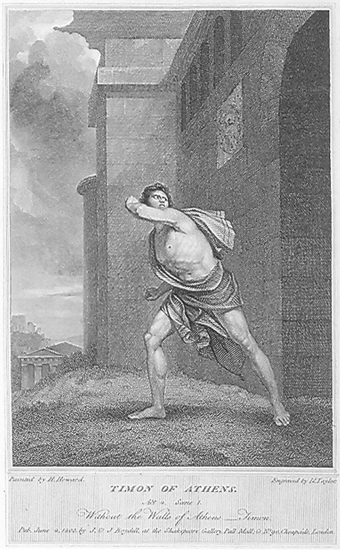When Shakespeare geeks heard that Sir Kenneth Branagh would be bringing us a story of Shakespeare’s final years, written by Ben Elton (who brought us Upstart Crow and Blackadder) and starring Dame Judi Dench and Sir Ian McKellen, hearts skipped more than a few beats. How could it be anything other than a dream come true? A modern Shakespeare movie to replace Shakespeare In Love in the “Shakespeare fan fiction” movie pantheon. All in all, I liked it. Parts I liked a lot. Parts I loved. My wife liked it, my kids liked it. But I don’t think it will be remembered as a great movie.
We open in 1613 after the Globe has burned down. The text tells us that Shakespeare never wrote another play. We instead return to Stratford Upon Avon, where he’s basically gone to retire and be with his family again. His reputation follows him – both as the world’s greatest writer, but also as the son of his disgraced father. Both fans and enemies alike follow him around and annoy him.
 Judi Dench is excellent as Anne Hathaway when she stops Shakespeare from coming into the bedroom, telling him, “Twenty years, Will. You can’t just back and pick up like everything is normal. You’re a guest here.” Later she’ll have more speeches about what it was like to be married to the world’s greatest writer and not know how to read, or how she felt when someone else read the sonnets to her. Answers to the “second-best bed” question are given but I didn’t find them satisfactory.
Judi Dench is excellent as Anne Hathaway when she stops Shakespeare from coming into the bedroom, telling him, “Twenty years, Will. You can’t just back and pick up like everything is normal. You’re a guest here.” Later she’ll have more speeches about what it was like to be married to the world’s greatest writer and not know how to read, or how she felt when someone else read the sonnets to her. Answers to the “second-best bed” question are given but I didn’t find them satisfactory.
The daughters also do an excellent job, but Judith is given much more to work with. Susannah is already trapped in an unhappy marriage to a Puritan, while Judith still lives at home and is an angry young lady who has no problem shouting things like, “Why don’t you just say it, father? The wrong twin died.” Yikes. Her relationship to Thomas Quiney was played brilliantly, I thought, and could easily have been the subplot of any modern drama.
That’s basically your plot – man ignores his family for twenty years, during which time his only son dies, and in his final years, he tries to set things right. One daughter is trapped in an unhappy marriage, one is rebelling at every opportunity, and his wife, their mother, is just trying to keep it all together in the name of reputation and honor. There’s some really heavy-handed symbolism right out of the gate where he says, “I think I’ll plant a garden.” Later, “I’m not a very good gardener…” and you can just imagine how it goes from there. Oh look, people came to help him… and so on.
 There’s enough Shakespeare bio here to appease the fans. All the important areas are touched on – what did Anne think about the sonnets? What was Shakespeare’s relationship to Henry Wriotheseley? The coat of arms, the glove making, even Thomas Lucey’s poached ponies are referenced. Stuff is quoted, from sonnets to A Midsummer Night’s Dream. Titus Andronicus makes an appearance. To the extent where you want to see this movie just to count the references, it’s enjoyable. Whenever there was a pause in the dialogue I’d do my own filling in the blanks for the kids. “Ok, that must be Thomas Quiney, look for him to do something that dishonors the family name and for Shakespeare to change his will…”
There’s enough Shakespeare bio here to appease the fans. All the important areas are touched on – what did Anne think about the sonnets? What was Shakespeare’s relationship to Henry Wriotheseley? The coat of arms, the glove making, even Thomas Lucey’s poached ponies are referenced. Stuff is quoted, from sonnets to A Midsummer Night’s Dream. Titus Andronicus makes an appearance. To the extent where you want to see this movie just to count the references, it’s enjoyable. Whenever there was a pause in the dialogue I’d do my own filling in the blanks for the kids. “Ok, that must be Thomas Quiney, look for him to do something that dishonors the family name and for Shakespeare to change his will…”
The problem, ultimately, is that everybody making this film knows that they are riding a line between “Here’s what we know” and “Here’s what we don’t, so we’re going to fill in the blanks.” Most of that “blank” surrounds Hamnet’s death and Shakespeare’s dealing with it (with second place going to “how could all the women in Shakespeare’s life be illiterate?” and third “what exactly was Shakespeare’s relationship to the Earl of Southampton?”) The more time they spent on Hamnet, the more I thought, “See, now, this is the stuff they’re just making up.” Hamnet wrote poems! Shakespeare and Hamnet had a favorite pond they used to walk to! How lovely … for an audience like my wife, who doesn’t know which parts of the story are true and which are not, so for her it’s basically all true and she can let herself enjoy it. But for those of us that are keeping a running fact checker in their heads because we can’t turn it off, the more time they spent in made up land, the weaker the movie becomes.
See the problem? They built the entire movie around Shakespeare’s relationship to his lost son. In that context, we learn about his relationship with his own father, and with his daughters, and with their children. But there’s that legal term “fruit of the poisonous tree”, and if all of your evidence traces its way back to a source that isn’t really legitimate, well, you have to throw it all out. I can’t totally fault them for it – the movie has to have a plot, after all – but it ends up being the weakest part, to me, because I couldn’t help thinking all is not true. Could it have been true? Sure. They do a better job there than Shakespeare In Love which I don’t think was at all suggesting that’s what really happened. But I’ll give Branagh that – he tells a perfectly reasonable story. But the title of that story is not Could Be True.
One thing that did surprise me – this film is *gorgeous*. I don’t know who is responsible for making the colors on the screen do what they do, but damn they did a fine job. Some shots are near breathtaking. For a play about a man of words, somebody decided, “We’re going to make sure we show just how beautiful the world around him is.” At times it reminded me of the Robin Williams movie What Dreams May Come (also a Shakespeare line!) with its literally out-of-this-world colors. Given that much of the story takes place inside – lit by candles, thus making the scenes pretty dark – the cuts to outside shots are always a breath of fresh air in more ways than one.
In the end, and maybe this was deliberate, I don’t know, but in the end, this is an average story about an average man. You could tell the “man tries to reconcile with the family he ignored for twenty years” about anybody. In this case, it just so happens to be the world’s greatest author. It might even have been a better movie if they pulled back on the Shakespeare and let that story shine through. There are parts where it was good, but plenty where it was contrived. There’s a scene where Judith screams, “Nothing is true!” just so we get our juxtaposition with the title of the movie for Heaven’s sake, but come on, who talks like that? What does that even mean? There’s the aforementioned garden. Lots of heavy-handedness like that. But I guess there’s an audience that likes that?
Go see it. Go see it with someone you love, who doesn’t know as much about Shakespeare as you do :). Spot the references, enjoy the colors.




